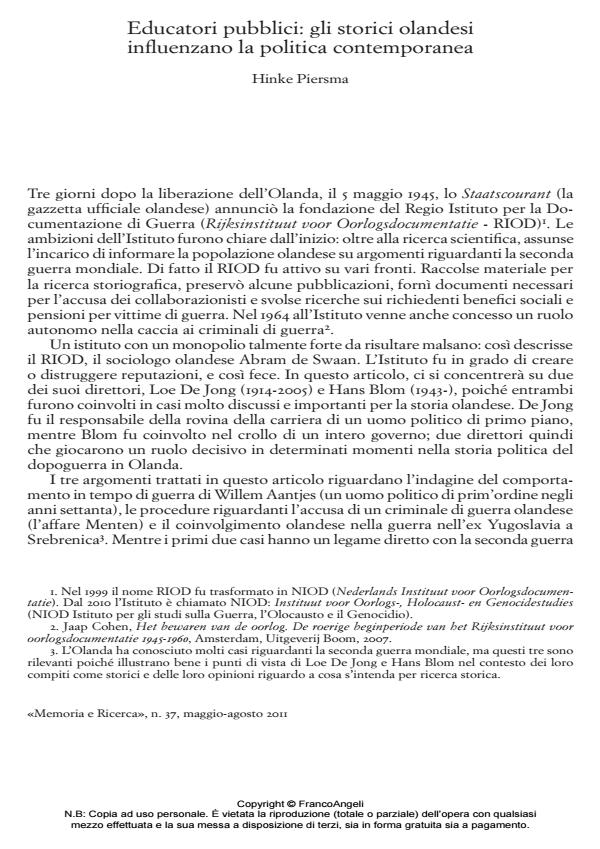Educatori pubblici: gli storici olandesi influenzano la politica contemporanea
Titolo Rivista MEMORIA E RICERCA
Autori/Curatori Hinke Piersma
Anno di pubblicazione 2011 Fascicolo 2011/37
Lingua Italiano Numero pagine 15 P. 71-85 Dimensione file 123 KB
DOI 10.3280/MER2011-037005
Il DOI è il codice a barre della proprietà intellettuale: per saperne di più
clicca qui
Qui sotto puoi vedere in anteprima la prima pagina di questo articolo.
Se questo articolo ti interessa, lo puoi acquistare (e scaricare in formato pdf) seguendo le facili indicazioni per acquistare il download credit. Acquista Download Credits per scaricare questo Articolo in formato PDF

FrancoAngeli è membro della Publishers International Linking Association, Inc (PILA)associazione indipendente e non profit per facilitare (attraverso i servizi tecnologici implementati da CrossRef.org) l’accesso degli studiosi ai contenuti digitali nelle pubblicazioni professionali e scientifiche
The accumulation of knowledge by government institutions has never been a judgment-free activity. Ever since its foundation in 1945, the Netherlands Institute for Study and Documentation of the Second World War (presently NIOD) has been trying to find a balance between scholarly pursuits and its social impact. In this article I explore three highly-debated cases, in which two NIOD directors were involved. These cases include: the fall of the Christian Democratic politician Willem Aantjes, the affair surrounding the Dutch war criminal Pieter Menten, and the dramatic events in Srebrenica and the question of Dutch responsibility. These topics are examples of situations in which scholarly research is intertwined with political debate. It raises the question of the role of historians when the past is publicly on trial. How is such a public role on the part historians affecting the profession in general, and, more specifically, is there a danger that historical research could become nothing other than politics by other means?
Parole chiave:Second World War; Collaboration; Dutch politics; Historians as hangman; Public History; Education
Hinke Piersma, Educatori pubblici: gli storici olandesi influenzano la politica contemporanea in "MEMORIA E RICERCA " 37/2011, pp 71-85, DOI: 10.3280/MER2011-037005